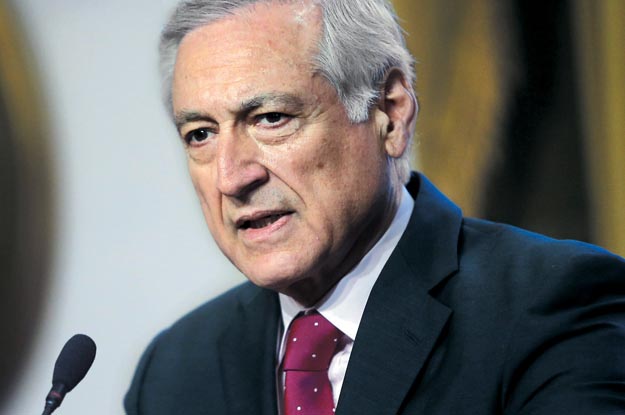Correction appended below
AMERICAS QUARTERLY: What are Chile’s views on bringing together the Pacific Alliance and Mercosur?
HERALDO MUÑOZ: Chile has proposed and led an initiative to strengthen the different integration schemes of Latin America with the idea of improving consultation and dialogue—an effort we have called “convergence in diversity.” True, there are different economic models and ways of integrating into the global economy in the region, but that should not be an insurmountable obstacle to regional integration. Beginning in 2014, we proposed a dialogue between the Pacific Alliance (Chile, Colombia, Mexico, and Peru) and Mercosur (Argentina, Brazil, Paraguay, Uruguay, and Venezuela). The process began with a formal meeting in Colombia and a seminar in Chile, where President Michelle Bachelet appealed to both blocs to stop turning their backs to each other.
After those meetings, an Action Plan between the two blocs was presented by Chile. We will continue to promote these ideas, convinced that a joint agenda is an important step for regional integration. Mercosur has responded with a counterproposal very similar to what was initially presented, which provides ground for optimism. The proposal contains specific and pragmatic actions to be pursued, allowing the Pacific Alliance and Mercosur to continue their own paths to integration, respecting their specificities and timelines. It is worth adding that the president of Brazil, Dilma Rousseff, recently declared that the relationship between the Pacific Alliance and Mercosur “should be seen as complementary and not as an alternative.” A recent Mercosur summit in Brazil called for further consultations between both groups to address the Action Plan.
AQ: Is this a step toward real regional integration or just another diplomatic gesture?
HM: Obviously, this is a foreign policy initiative. But we are convinced that it is in the interest of both the Pacific Alliance and Mercosur to create more intraregional trade, and to strengthen the region’s capacity to negotiate with industrialized nations and Asian countries. Currently, across the globe, regions are negotiating. A region that is divided between the Pacific and the Atlantic is counterproductive; it weakens us.
There are differences with respect to the trade and regulatory environment between Mercosur and the Pacific Alliance, so that a fusion is out of the question, because it would be unrealistic; but we have a mutual interest in achieving lower costs, better infrastructure, energy, and communication, modern ports—and in transforming our countries into something more than exporters of natural resources.
We also want to support smes (small and medium enterprises). Agreements in these areas will improve our competitiveness in global markets and will generate more economic activity in a region where just 18 percent of its trade is within its boundaries.
AQ: What is Chile looking for in this new relationship?
HM: Latin America is Chile’s foreign policy priority. To achieve sustainable development, we need to go beyond the production and export of natural resources. For
this, it is fundamental to increase investment in quality, public education, science and technology, as well as attract foreign investment, develop areas such as infrastructure and energy, and encourage the diversification of production and exports. A close alliance between our countries is a key factor to boost the development of regional value chains. We are convinced that we should not cease in our efforts to find a common agenda on the issues that unite us, and not dwell on those that which separate us.
—
Because of an editing error, a reference in the fifth paragraph of this article to “interregional” trade has been corrected to “intraregional” trade.



